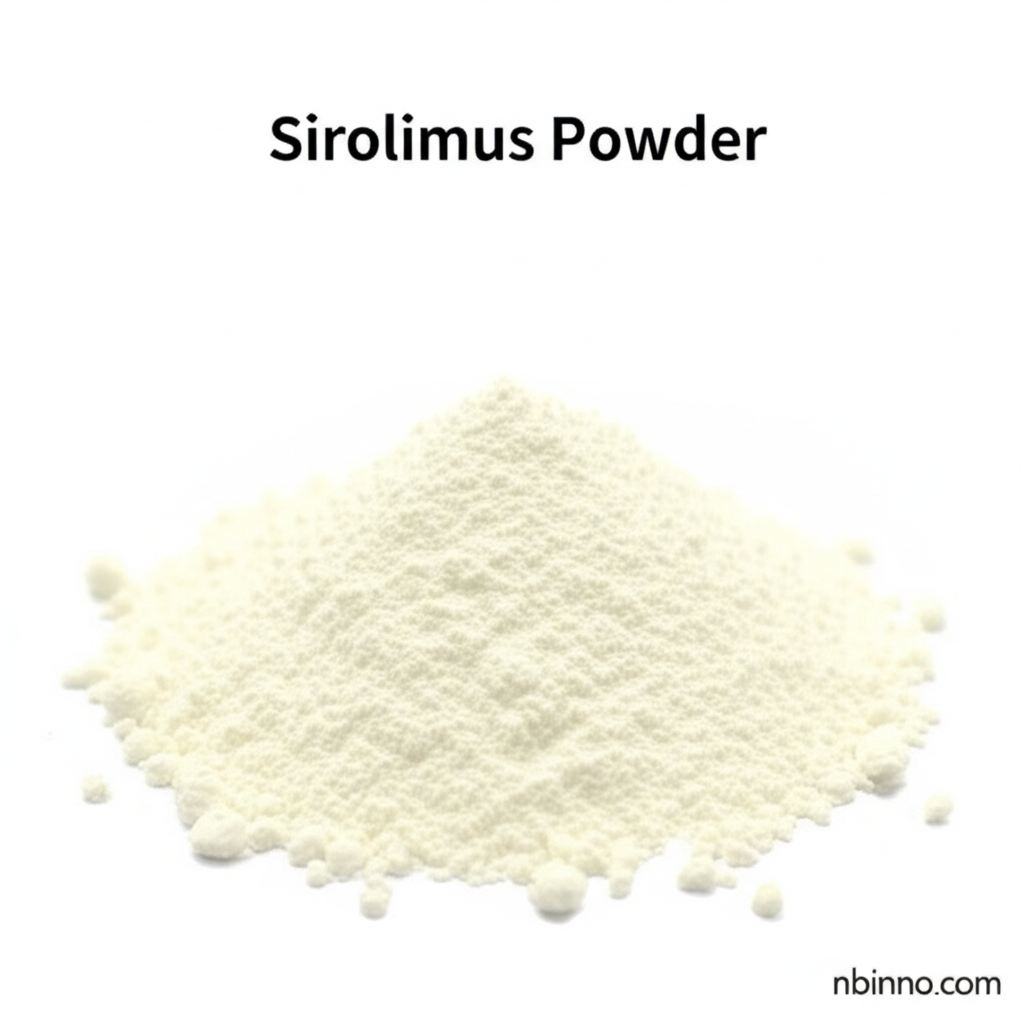Sirolimus (Rapamycin): A Deep Dive into its Medical Applications
Exploring the multifaceted therapeutic roles of this vital immunosuppressant and mTOR inhibitor.
Get a Quote & SampleProduct Core Value

Sirolimus Powder
Sirolimus, also known as Rapamycin, is a powerful immunosuppressant drug with significant therapeutic applications, primarily in preventing organ transplant rejection. It functions by inhibiting the mammalian target of rapamycin (mTOR) pathway, which plays a crucial role in cell growth, proliferation, and immune responses. Beyond transplantation, its unique properties are being explored for various medical conditions.
- Explore the sirolimus uses kidney transplant to understand its critical role in post-operative care.
- Learn about the rapamycin mechanism of action as an mTOR inhibitor, key to its therapeutic effects.
- Discover the benefits of immunosuppressant drug sirolimus in managing complex medical conditions.
- Understand the potential sirolimus side effects and how they are managed in clinical practice.
Key Advantages
Transplant Success Enhancement
Sirolimus plays a vital role in preventing organ transplant rejection, significantly improving patient outcomes and the longevity of transplanted organs.
Targeted Cellular Inhibition
As an mTOR inhibitor sirolimus works by blocking critical cellular pathways, offering therapeutic potential in conditions like cancer and rare diseases.
Treatment for Rare Diseases
The drug is an approved treatment for lymphangioleiomyomatosis treatment (LAM), offering hope to patients with this rare pulmonary condition.
Key Applications
Organ Transplantation
Sirolimus is instrumental in preventing the rejection of transplanted organs, a cornerstone of successful transplant surgery. Understanding sirolimus in organ transplantation is crucial.
Lymphangioleiomyomatosis (LAM)
Its approval for LAM highlights its efficacy in treating rare diseases, offering a critical treatment option for patients suffering from this lung condition.
Cancer Research & Therapy
Ongoing research into rapamycin cancer treatment suggests potential roles in inhibiting tumor growth and enhancing immune responses against cancer cells.
Vascular and Skin Conditions
Sirolimus is also utilized in treating vascular malformations and facial angiofibromas, showcasing its versatility across different medical fields.
